Find Help
More Items From Ergsy search
-
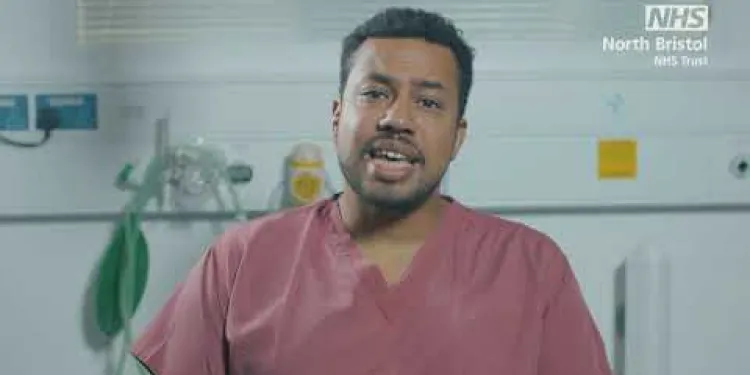
Surgery under local anaesthetic in the Minor Ops Unit at North Bristol NHS Trust
Relevance: 100%
-
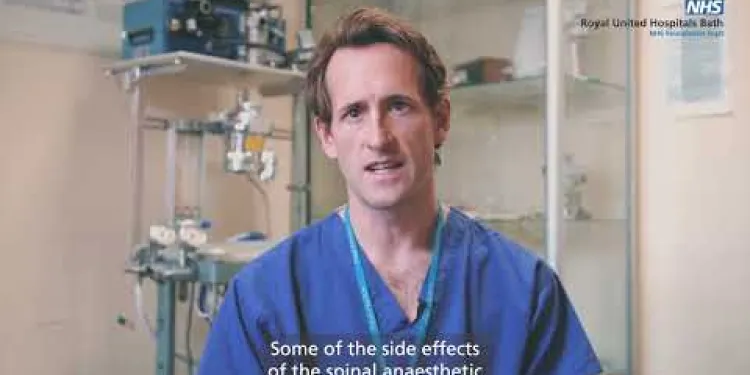
Your anaesthetic choices for your planned hip or knee replacement surgery at the RUH.
Relevance: 38%
-
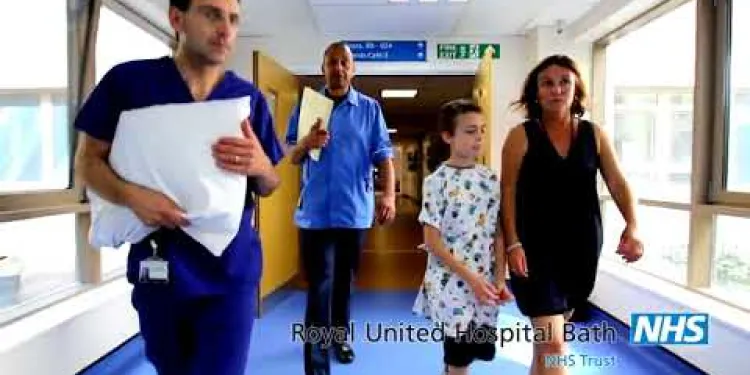
Having an anaesthetic for your operation - for over 8s
Relevance: 34%
-

Top 5 questions about having a general anaesthetic
Relevance: 33%
-
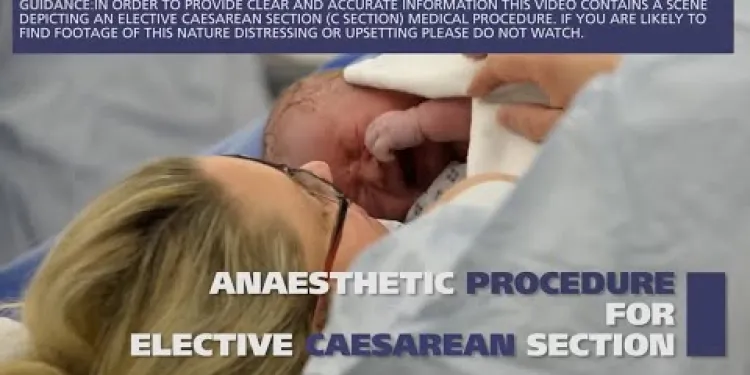
Anaesthetic procedure for elective caesarean section (C section)
Relevance: 31%
-
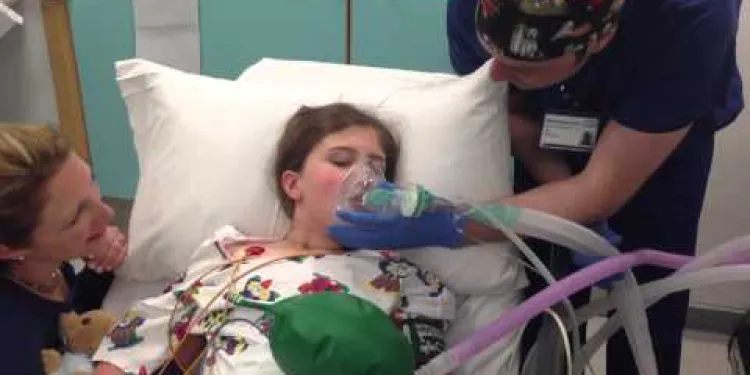
My General Anaesthetic: What's Going To Happen? Sarah's Story at Worcestershire Royal Hospital.
Relevance: 31%
-

Can minors be charged with drug offences?
Relevance: 25%
-

Can a minority shareholder block corporate decisions?
Relevance: 23%
-
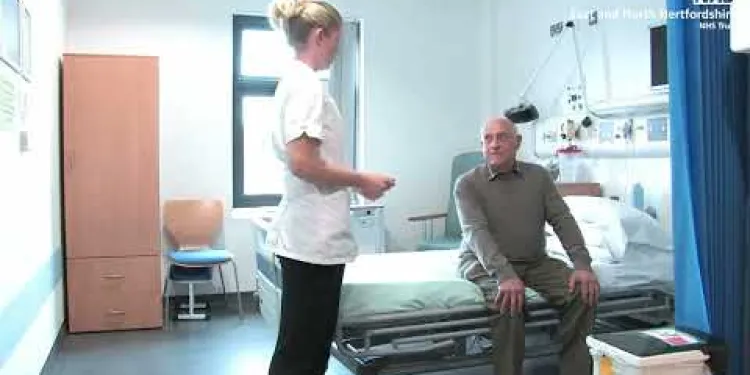
A journey to hip surgery
Relevance: 22%
-
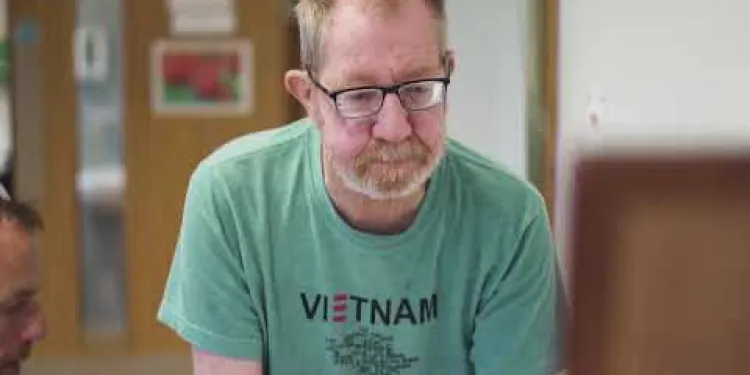
Vale Stroke Unit
Relevance: 21%
-
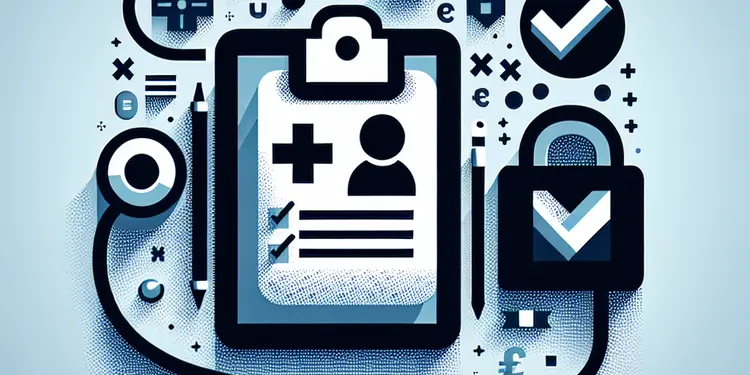
Does the right to access my medical records apply to minors?
Relevance: 21%
-

On the day of your cataract surgery
Relevance: 21%
-
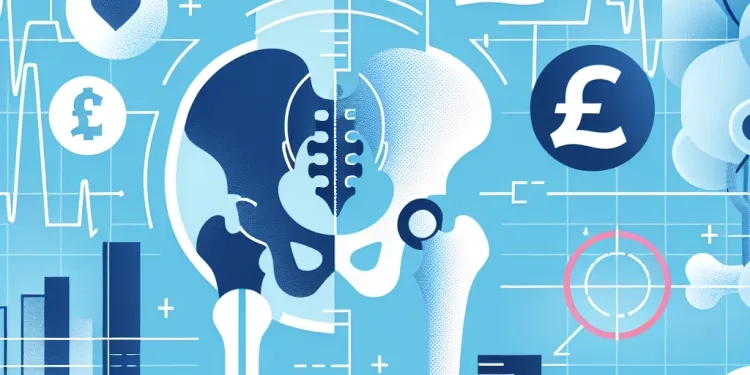
What type of anaesthesia is used during hip replacement surgery?
Relevance: 21%
-

Evidence-Based Interventions: haemorrhoid surgery
Relevance: 20%
-
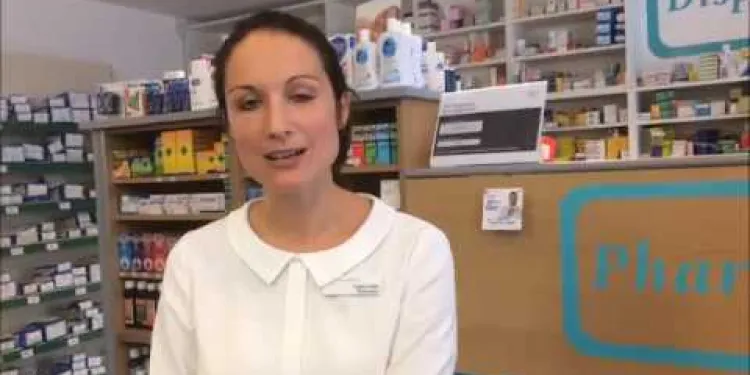
Minor ailment scheme - Impetigo
Relevance: 20%
-
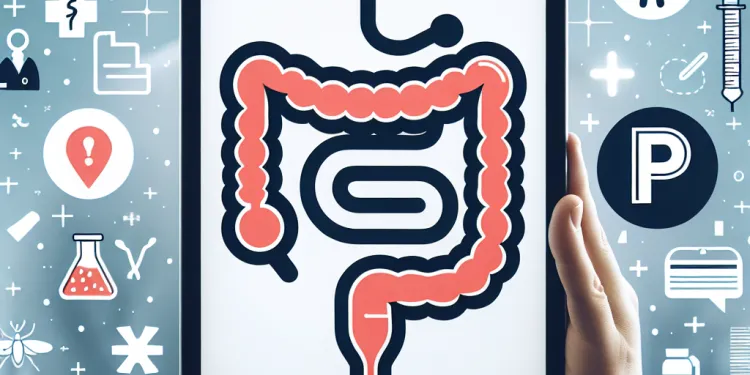
Is surgery necessary for Crohn's disease?
Relevance: 19%
-
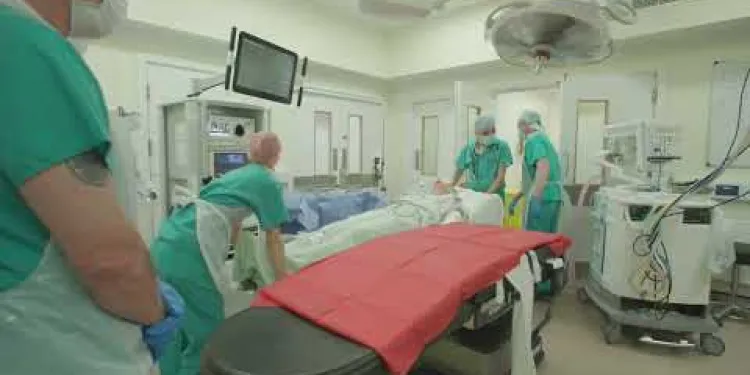
Prostate Surgery
Relevance: 19%
-
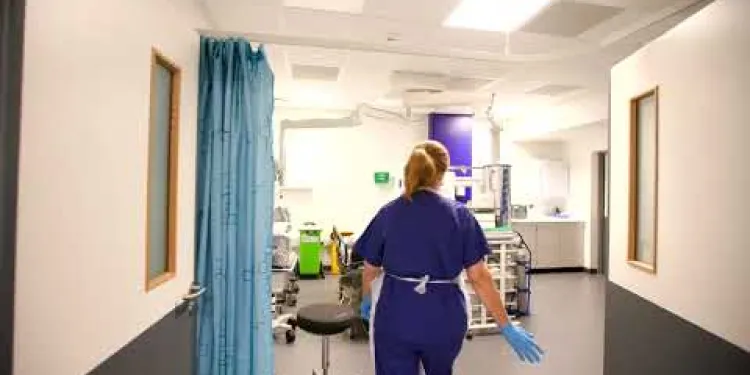
Endoscopy Unit
Relevance: 19%
-
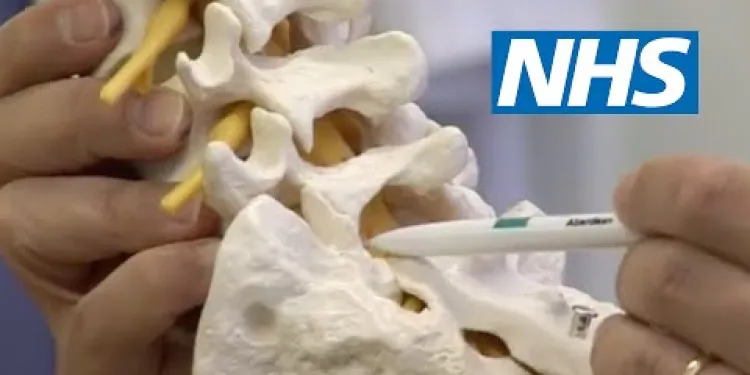
Lumbar surgery | NHS
Relevance: 19%
-
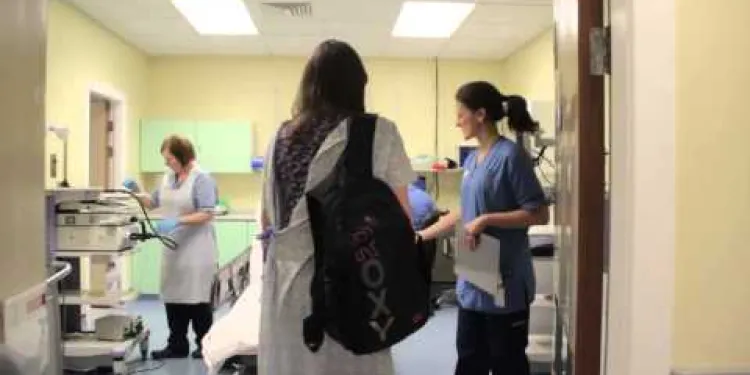
Your Visit to the Endoscopy Unit at NHS Tayside
Relevance: 19%
-

Are there mosquitoes in the United Kingdom?
Relevance: 19%
-

Are there Mosquitos in the United Kingdom?
Relevance: 19%
-

Is there a national database for checking waiting times for surgeries?
Relevance: 18%
-
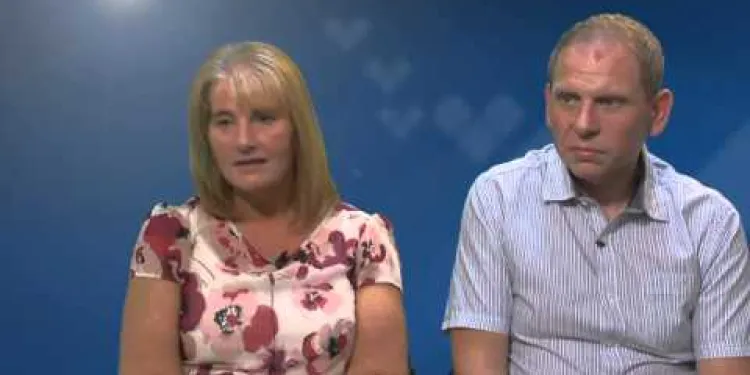
Weight Loss Surgery
Relevance: 18%
-
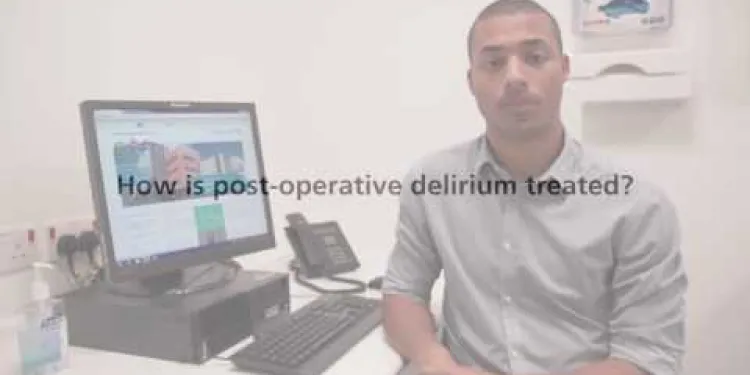
Experiencing delirium after surgery
Relevance: 18%
-
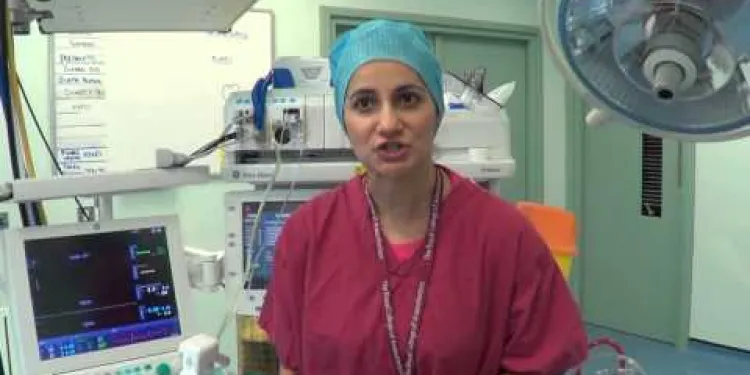
Enhanced Recovery After Surgery in Forth Valley
Relevance: 18%
-

How does surgery treat prostate cancer?
Relevance: 18%
-
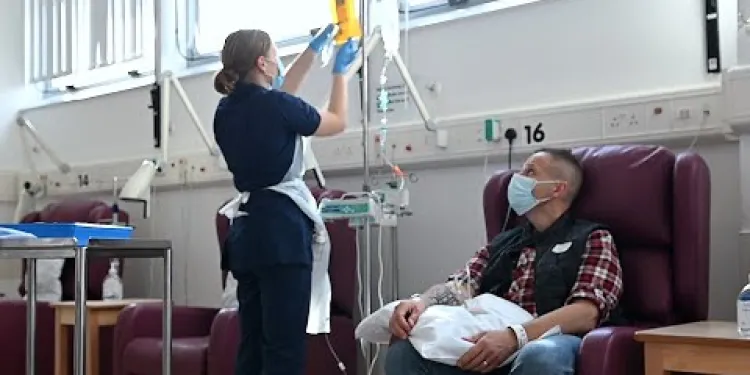
Having chemotherapy and other treatments in the Day Treatment Unit
Relevance: 17%
-
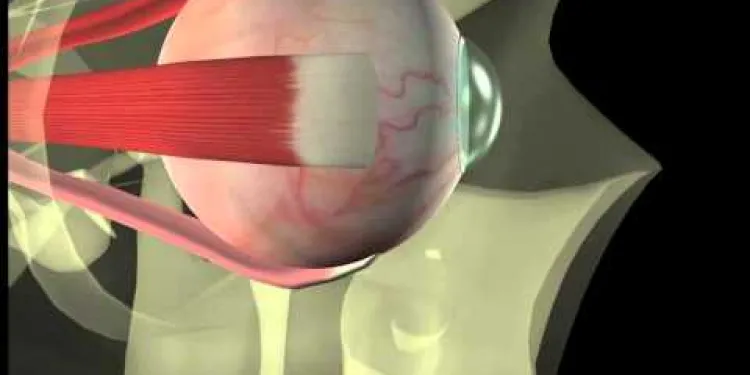
Thyroid eye disease. Squint surgery - The operation
Relevance: 17%
-
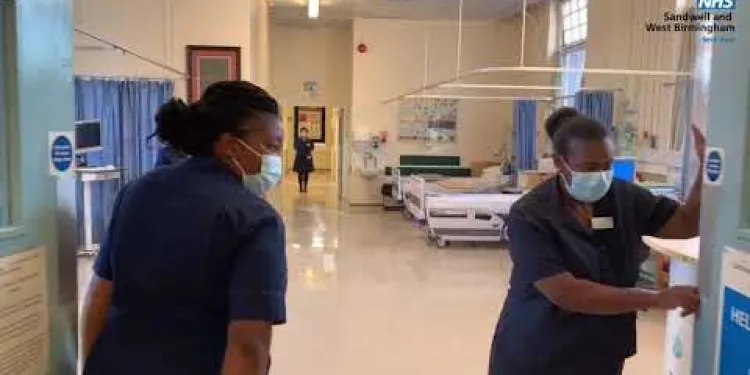
Tour of the Sickle Cell and Thalassaemia Unit at City Hospital | SCaT
Relevance: 17%
-

When is surgery recommended for BPH?
Relevance: 17%
-

Is ketamine considered a controlled substance in the United States?
Relevance: 17%
-
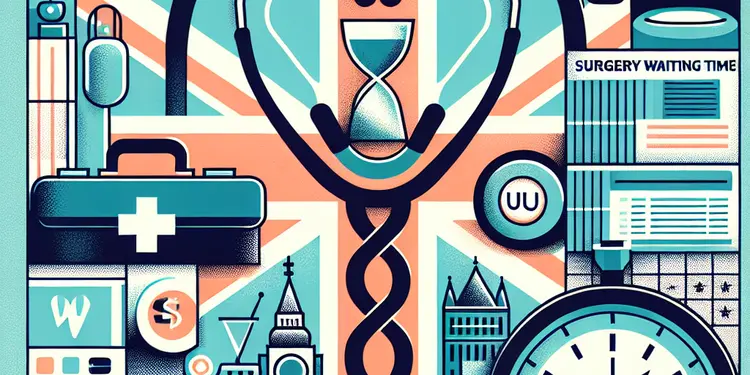
Who should I contact for questions about surgery waiting times?
Relevance: 17%
-
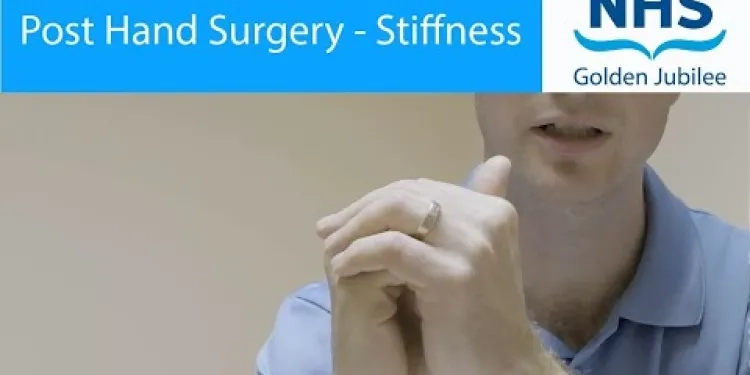
Post hand surgery - Stiffness management and trigger finger
Relevance: 17%
-
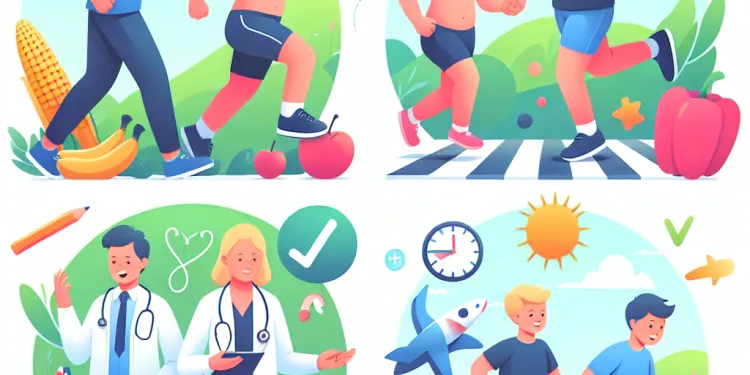
Is childhood obesity a concern in the United Kingdom?
Relevance: 16%
-

Impact of UK Housing Crisis on Local Communities
Relevance: 16%
-

Local Councils Struggle with Increasing Demand for Welfare Support
Relevance: 16%
-
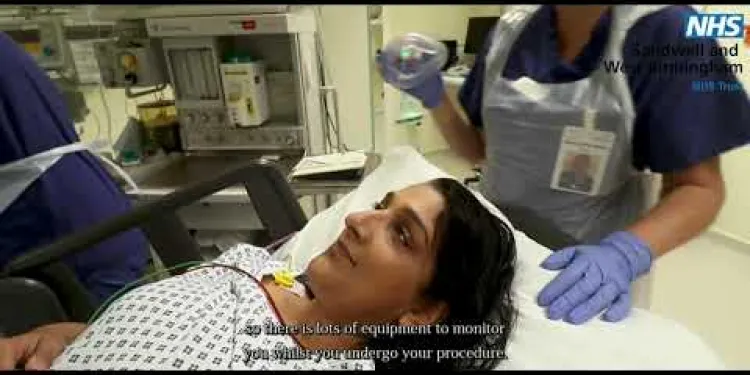
What to expect when visiting our hospitals for surgery | Theatres
Relevance: 16%
-
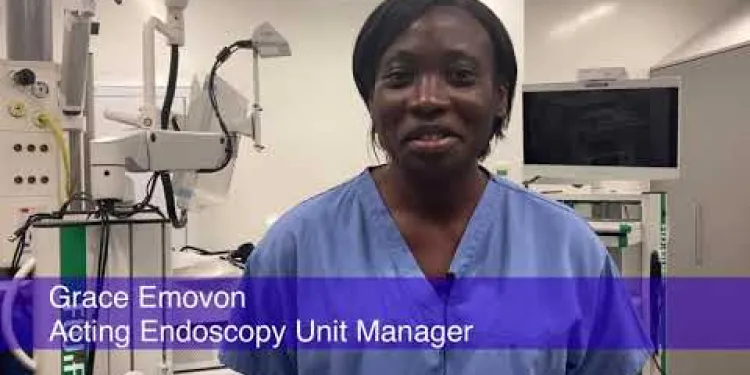
Coming to the Endoscopy Unit at Harrogate District Hospital
Relevance: 16%
-

What is the role of local government in boundary disputes?
Relevance: 16%
Surgery Under Local Anaesthetic in the Minor Ops Unit at North Bristol NHS Trust
Introduction
The Minor Ops Unit at North Bristol NHS Trust is dedicated to providing high-quality surgical procedures using local anaesthetic. This type of anaesthesia numbs a specific area of the body, enabling patients to undergo minor surgical procedures without the need for general anaesthetic.
What is Local Anaesthetic?
Local anaesthetic involves injecting medication into a small part of the body to temporarily block the sensation of pain. Unlike general anaesthesia, local anaesthetic allows patients to remain awake and alert during the procedure.
Benefits of Local Anaesthetic
There are several benefits associated with using local anaesthetic, including reduced risk compared to general anaesthesia, quicker recovery times, and fewer postoperative complications. Patients often experience less grogginess and can go home sooner, making it a preferable option for minor surgeries.
Types of Procedures
The Minor Ops Unit at North Bristol NHS Trust offers a variety of surgeries under local anaesthetic, such as:
- Removals of cysts and lumps
- Carpal tunnel release
- Toenail surgeries
- Skin biopsy and lesion removal
Preparation and Procedure
Before the procedure, the surgical team will explain all necessary preparations and what to expect. Typically, patients can eat and drink normally, and it is advised to wear comfortable clothing. During the surgery, the area to be treated will be cleaned and sterilised, followed by the administration of the local anaesthetic. The surgery itself usually takes between 30 minutes to an hour.
Aftercare
Post-surgery, the medical team will provide specific aftercare instructions, which may include keeping the wound clean and dry, taking prescribed medication, and attending follow-up appointments. Most patients can quickly return to their daily activities with minimal downtime.
Conclusion
North Bristol NHS Trust's Minor Ops Unit is committed to delivering safe and efficient surgical care under local anaesthetic. By choosing this method, patients benefit from a faster recovery time and a more comfortable experience, ensuring that their minor surgical needs are met with the utmost professionalism and care.
Surgery with Local Anaesthetic at North Bristol NHS Trust
Introduction
At North Bristol NHS Trust, we do small surgeries with local anaesthetic. This medicine makes a small part of your body numb, so you don’t feel pain. You stay awake and don’t need big sleep medicines called general anaesthetic.
What is Local Anaesthetic?
Local anaesthetic is a special medicine. It is put into a small part of your body to stop pain for a little while. You stay awake and not sleepy during the surgery.
Benefits of Local Anaesthetic
Using local anaesthetic is good because it is safer than big sleep medicines. You get better quicker and feel less sleepy after. You can go home sooner. This makes it a good choice for small surgeries.
Types of Procedures
At North Bristol NHS Trust, we do different types of surgeries with local anaesthetic, like:
- Taking out cysts and lumps
- Fixing carpal tunnel
- Removing toenails
- Taking samples of skin or removing skin patches
Getting Ready and the Procedure
Before surgery, the team will tell you what to do to get ready. You can usually eat and drink as normal. Wear comfy clothes. During surgery, the area will be cleaned and numbed with local anaesthetic. Surgery usually lasts 30 minutes to an hour.
Aftercare
After surgery, the team will tell you how to take care of yourself. You might need to keep the area clean, take medicine, and go to follow-up appointments. Most people can go back to daily activities quickly.
Conclusion
The Minor Ops Unit at North Bristol NHS Trust offers safe and easy surgeries with local anaesthetic. This helps you recover faster and feel more comfortable. You will get great care for your small surgery needs.
Frequently Asked Questions
What is surgery under local anaesthetic?
Surgery under local anaesthetic involves numbing a small part of the body to perform minor surgical procedures without the need for general anaesthesia.
What types of procedures are done under local anaesthetic at North Bristol NHS Trust?
Common procedures include skin lesion removal, mole excision, cyst removal, and other minor dermatological and surgical interventions.
Is it safe to have surgery under local anaesthetic?
Yes, it is generally very safe. The risks are minimal compared to general anaesthesia, and patients recover more quickly.
How long will the procedure take?
Most minor surgical procedures under local anaesthetic typically take between 30 minutes to an hour.
Will I feel any pain during the procedure?
You might feel a slight pinch when the local anaesthetic is injected, but the area will be numb, so you should not feel pain during the procedure.
What should I wear on the day of my surgery?
Wear comfortable, loose-fitting clothing that can be easily adjusted to expose the area being treated.
Do I need to bring someone with me?
It is recommended to have someone accompany you to the appointment, especially if you feel anxious or if you might need assistance after the procedure.
Can I eat and drink before my surgery?
Yes, since you will not be under general anaesthetic, you can eat and drink normally before your procedure.
What should I do after the procedure?
Follow the post-operative care instructions given by your surgeon, which will include information on wound care and activity restrictions.
Will I need any follow-up appointments?
You may need follow-up appointments to check on your healing and remove stitches if necessary. Your surgeon will provide details specific to your case.
How long will it take to recover?
Recovery time varies depending on the procedure, but most people can return to normal activities within a few days to a week.
Are there any side effects of local anaesthetic?
Side effects are rare but can include minor swelling, redness, or bruising at the injection site. Serious side effects are extremely uncommon.
What if I feel unwell after the procedure?
Contact your GP or the minor ops unit if you experience severe pain, signs of infection, or any other concerning symptoms.
Will I be able to drive after my surgery?
In most cases, you will be able to drive yourself home after the procedure, but it’s best to have someone available to drive you if you feel unwell or unsure.
What should I do if my wound starts to bleed?
Apply gentle pressure with a clean cloth and contact the minor ops unit or your GP if the bleeding does not stop or if it increases.
What is surgery with local anaesthetic?
Surgery with local anaesthetic is a small operation. It helps fix a part of your body. Doctors use special medicine so you don't feel pain.
What to know:
- Only a small part of your body is made numb.
- You stay awake during the surgery.
- The doctor might give you a needle to make it numb.
- It is usually quick, and you can go home the same day.
Helpful tools: You can use picture books or videos to learn more about this. Ask someone like a family member or a carer to explain if you have questions.
When you have surgery with local anaesthetic, only a small part of your body is made numb. This way, you can have a small operation without being put to sleep.
What kind of medical procedures can North Bristol NHS Trust do with local anaesthetic?
Local anaesthetic is medicine that makes a small part of your body numb. It means you won't feel pain in that area.
Here are some things they might use local anaesthetic for:
- Small skin surgeries. This could be removing a mole.
- Fixing small cuts or wounds with stitches.
- Treating small areas in the mouth, like fixing a bad tooth.
If you want help, you can:
- Ask your doctor or nurse to explain slowly and clearly.
- Bring a friend or family member with you to help understand.
- Take notes or draw pictures to remember better.
Doctors do little surgeries to help your skin. They can take off things like skin bumps, moles, and lumps. These surgeries are quick and don’t hurt much.
If you find reading hard, you can use tools that read text out loud to you. Also, you can ask someone to help explain things.
Is it safe to have an operation while awake?
Doctors sometimes do operations while you are awake. This is called local anaesthetic. They use medicine to make sure you don’t feel pain.
Supportive tools: You can ask your doctor to explain the steps. You can also take a friend or family member with you to make you feel safe and help you understand.
Yes, it is very safe. It is not as risky as being put to sleep for an operation. People feel better quicker after it.
How long will it take?
This means: How much time will it need? Here is what you can do to understand better:
- Ask the doctor or nurse: "How many minutes or hours will it take?"
- Use a timer or clock to help keep track of time.
Small surgeries with a numbing medicine usually take 30 minutes to 1 hour.
Will it hurt during the procedure?
No, it should not hurt. You will get medicine to make you numb so you do not feel anything.
If you feel scared or worried, it can help to talk to the doctor or a nurse. They can explain what will happen and answer your questions.
A friend or family member can come with you to make you feel better.
You might feel a little poke when the doctor gives you the numbing medicine. But it makes the area numb, so you will not feel pain during the treatment.
What clothes should I wear when I go for my surgery?
Here are some easy tips to help you:
- Wear comfy clothes, like a t-shirt and loose pants.
- Choose clothes that are easy to take off and put on.
- Use slip-on shoes so they are easy to wear.
- Leave jewelry and makeup at home.
Tools to help you:
- Ask a friend or family member for help picking clothes.
- Use a picture checklist to remember what to wear.
Wear clothes that are comfy and not too tight. Make sure you can move them to show the part of your body being treated.
Should I bring a friend with me?
It's a good idea to bring someone with you. They can help you feel better.
Think about bringing a family member or a friend to support you.
It is good to have someone go with you to the appointment. This can help if you feel scared or need help after.
Can I eat or drink before my surgery?
No, you should not eat or drink before your surgery. It is important for your safety.
Ask your doctor or nurse if you have questions. They can help you understand what to do.
Using pictures or simple checklists can help you remember what to do.
Yes, you can eat and drink like normal before your procedure because you won't be asleep from the medicine.
What do I do after the treatment?
Here is what you can do after your treatment:
- Rest at home.
- Drink plenty of water.
- If it hurts, tell an adult.
- Ask a grown-up if you need medicine.
- Use a calendar or a phone to remind you of any next steps.
You can ask someone for help if you feel unsure.
Listen to what your doctor says to do after your surgery. They will tell you how to take care of your wound and what things you should not do.
Do I need to come back to the doctor?
You might need to visit the doctor again to see how you are getting better. The doctor will tell you if your stitches need to come out. Your doctor will explain what you need to do.
How long will it take to get better?
It may take time to feel better. Everyone is different. Some people get better quickly, while others may take longer. Try to be patient with yourself.
If you have questions, you can ask a doctor or nurse. They can help you understand.
Using a calendar to mark each day can help. You can see how far you have come. This makes it easier to see progress.
How long it takes to get better can be different for everyone. But most people can go back to their usual things in a few days or up to one week.
Can local anaesthetics cause problems?
Local anaesthetics are usually safe, but they can cause some problems. These are called side effects.
Some people might feel a little dizzy or have a headache. Others might feel sick in their tummy.
But don’t worry, these side effects usually go away by themselves. If you feel worried, talk to your doctor or nurse.
You can use tools like picture cards or simple videos to understand better what local anaesthetic does.
Sometimes people might have a small bump, some redness, or a little bruise where they got the shot. This doesn't happen a lot. It's really rare for something serious to happen.
What should I do if I feel sick after the treatment?
Talk to your doctor or the small surgery team if you have bad pain, signs of being sick, or anything else that worries you.
Can I drive after my surgery?
Ask your doctor if you can drive after your surgery. Surgery might make you feel tired or dizzy, which can make it unsafe to drive.
Here are some tips:
- Have someone else drive you home after the surgery.
- Follow your doctor's advice about when it is safe to drive again.
- Practice deep breathing to help you relax.
If you feel unsure, it's always best to ask for help!
Usually, you can drive yourself home after the procedure. But it's a good idea to have someone ready to drive you if you feel sick or unsure.
What to Do if Your Cut Starts Bleeding
If your cut starts bleeding, try to stay calm. Press a clean cloth on the cut to stop the blood. Lift the cut above your heart if you can. If it keeps bleeding, get help from a grown-up or call a doctor.
Ask someone to help if you need it.
Press gently on the cut with a clean cloth. If the bleeding doesn't stop, or if it gets worse, call the small surgery team or your doctor.
Useful Links
This website offers general information and is not a substitute for professional advice.
Always seek guidance from qualified professionals.
If you have any medical concerns or need urgent help, contact a healthcare professional or emergency services immediately.
Some of this content was generated with AI assistance. We’ve done our best to keep it accurate, helpful, and human-friendly.
- Ergsy carfully checks the information in the videos we provide here.
- Videos shown by Youtube after a video has completed, have NOT been reviewed by ERGSY.
- To view, click the arrow in centre of video.
- Most of the videos you find here will have subtitles and/or closed captions available.
- You may need to turn these on, and choose your preferred language.
- Go to the video you'd like to watch.
- If closed captions (CC) are available, settings will be visible on the bottom right of the video player.
- To turn on Captions, click settings .
- To turn off Captions, click settings again.
More Items From Ergsy search
-

Surgery under local anaesthetic in the Minor Ops Unit at North Bristol NHS Trust
Relevance: 100%
-

Your anaesthetic choices for your planned hip or knee replacement surgery at the RUH.
Relevance: 38%
-

Having an anaesthetic for your operation - for over 8s
Relevance: 34%
-

Top 5 questions about having a general anaesthetic
Relevance: 33%
-

Anaesthetic procedure for elective caesarean section (C section)
Relevance: 31%
-

My General Anaesthetic: What's Going To Happen? Sarah's Story at Worcestershire Royal Hospital.
Relevance: 31%
-

Can minors be charged with drug offences?
Relevance: 25%
-

Can a minority shareholder block corporate decisions?
Relevance: 23%
-

A journey to hip surgery
Relevance: 22%
-

Vale Stroke Unit
Relevance: 21%
-

Does the right to access my medical records apply to minors?
Relevance: 21%
-

On the day of your cataract surgery
Relevance: 21%
-

What type of anaesthesia is used during hip replacement surgery?
Relevance: 21%
-

Evidence-Based Interventions: haemorrhoid surgery
Relevance: 20%
-

Minor ailment scheme - Impetigo
Relevance: 20%
-

Is surgery necessary for Crohn's disease?
Relevance: 19%
-

Prostate Surgery
Relevance: 19%
-

Endoscopy Unit
Relevance: 19%
-

Lumbar surgery | NHS
Relevance: 19%
-

Your Visit to the Endoscopy Unit at NHS Tayside
Relevance: 19%
-

Are there mosquitoes in the United Kingdom?
Relevance: 19%
-

Are there Mosquitos in the United Kingdom?
Relevance: 19%
-

Is there a national database for checking waiting times for surgeries?
Relevance: 18%
-

Weight Loss Surgery
Relevance: 18%
-

Experiencing delirium after surgery
Relevance: 18%
-

Enhanced Recovery After Surgery in Forth Valley
Relevance: 18%
-

How does surgery treat prostate cancer?
Relevance: 18%
-

Having chemotherapy and other treatments in the Day Treatment Unit
Relevance: 17%
-

Thyroid eye disease. Squint surgery - The operation
Relevance: 17%
-

Tour of the Sickle Cell and Thalassaemia Unit at City Hospital | SCaT
Relevance: 17%
-

When is surgery recommended for BPH?
Relevance: 17%
-

Is ketamine considered a controlled substance in the United States?
Relevance: 17%
-

Who should I contact for questions about surgery waiting times?
Relevance: 17%
-

Post hand surgery - Stiffness management and trigger finger
Relevance: 17%
-

Is childhood obesity a concern in the United Kingdom?
Relevance: 16%
-

Impact of UK Housing Crisis on Local Communities
Relevance: 16%
-

Local Councils Struggle with Increasing Demand for Welfare Support
Relevance: 16%
-

What to expect when visiting our hospitals for surgery | Theatres
Relevance: 16%
-

Coming to the Endoscopy Unit at Harrogate District Hospital
Relevance: 16%
-

What is the role of local government in boundary disputes?
Relevance: 16%


